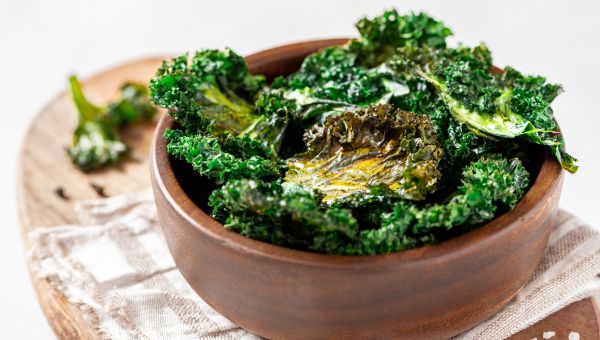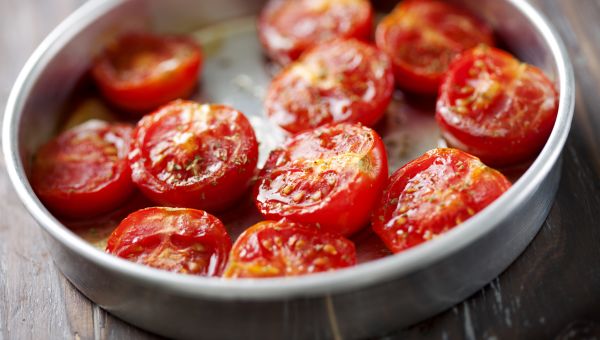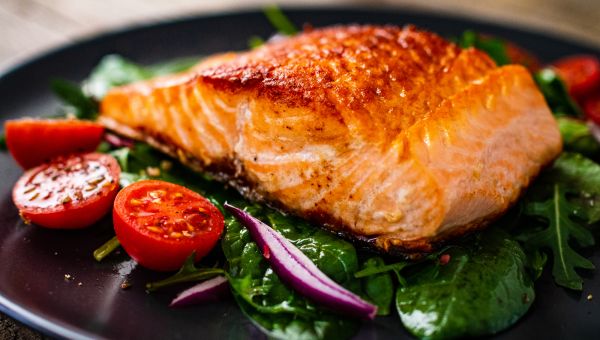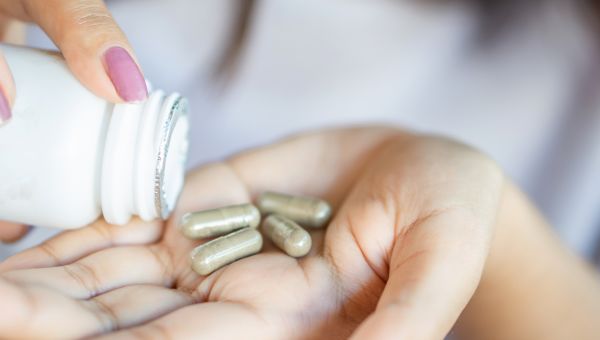What to eat for healthy eyes
When it comes to protecting your vision, a healthy diet can go a long way.
Updated on December 16, 2024

As you grow older, you may worry more about your eyes. Many adults in the United States are more afraid of losing their vision to diseases like age-related macular degeneration (AMD), glaucoma, and cataracts than they are of developing heart disease, stroke, or cancer, according to the American Academy of Ophthalmology.
But there’s good news: Eating a healthy diet can help nourish your eyes and protect against vision loss and eye diseases. Focusing on certain foods and nutrients may be especially helpful.

Vitamins A, C, and E
Antioxidants are substances that help prevent or delay damage to cells in the body. Certain foods—especially fruits and vegetables—are rich in antioxidants. And some are especially good for your eyes.
- Vitamin A helps you see in low light. Deficiency is linked to night blindness, which can lead to actual blindness. But that's rare in the U.S. Foods rich in vitamin A include leafy greens, sweet potatoes, carrots, eggs, milk, and fatty fish.
- Vitamin C improves the function of cells in your retina and helps protect your eyes from environmental damage. Among the best sources of vitamin C are citrus fruits, bell peppers, broccoli, kiwi, and strawberries.
- Vitamin E helps protect against AMD and cataracts. Get your daily dose from nuts and seeds—especially almonds and sunflower seeds—or sunflower or safflower oil.

Zinc
This trace mineral helps support immunity and cell growth and may help lower the risk of macular degeneration. The best dietary source of zinc—by far—is oysters. They offer about 10 times the amount of zinc contained in a bottom sirloin steak, which is the second-best source. Other good sources include blue crab, pumpkin seeds, and oatmeal.

Lutein and Zeaxanthin
Among other benefits, these two antioxidants help protect your eyes from damage caused by the sun’s ultraviolet (UV) rays.
"Studies show that people whose diets are richest in these phytonutrients [plant chemicals] are also at lower risk for AMD," says Janis Jibrin, MS, RD, a registered dietitian nutritionist and a member of Sharecare’s advisory board.
When it comes to lutein and zeaxanthin, think gold and green. Dark leafy greens are a great source, as are peas, zucchini, egg yolks, oranges, and corn.

Lycopene
Lycopene is an antioxidant that lends red fruits and vegetables their rich color. It helps protect cell membranes. There’s also some evidence that consuming plenty of lycopene-rich foods may help prevent cataracts.
Pink fruits like guava, watermelon, grapefruit, papaya, and persimmon all contain healthy doses of lycopene. Tomatoes are a top source, too. Cooking them in a little healthy fat, such as olive oil, can help make the lycopene easier for your body to absorb.

Omega-3 Fatty Acids
"When it comes to fish, your mom was right," says Anne Sumers, MD, an ophthalmologist in Ridgewood, New Jersey. Omega-3 fatty acids in fatty, cold-water fish help reduce inflammation, which can lower the risk of AMD and glaucoma. Choose salmon, Atlantic herring, and sardines, which are richest in omega-3s.
If you’d prefer to go with plant-based foods, try flaxseed oil or flaxseeds, chia seeds, walnuts, canola oil, or soybean oil.

What about supplements?
Food should be your first source of nutrition for healthy eyes. If you’re interested in taking a supplement, speak with a healthcare provider (HCP) first. They can help decide if it’s the best choice for you.
Two supplements, AREDS and AREDS 2, may help prevent progression of AMD in people who already have it at the intermediate level. Their effectiveness depends on a person’s needs, health conditions, and diet. If you don't have intermediate AMD, it’s best to get necessary nutrients from your diet.

How Managing Your Weight Can Benefit Eye Health
Obesity raises the risk for AMD and glaucoma. It also increases the chances of developing type 2 diabetes, which is a leading cause of blindness due to diabetic retinopathy.
Eating a healthy diet can help to manage your weight, lowering your odds of developing these eye diseases. A diet rich in whole foods—and light on processed foods—is also typically lower in sodium. This helps prevent high blood pressure, another risk factor for eye problems.

National Institutes of Health (NIH). Vitamin A and Carotenoids. Page last updated August 12, 2022.
National Institutes of Health (NIH). Vitamin C. Page last updated March 26, 2021.
National Institutes of Health (NIH). Vitamin E. Page last updated March 26, 2021.
National Institutes of Health (NIH). Zinc. Page last updated September 28, 2022.
Cleveland Clinic. What is Zeaxanthin? Benefits and Side Effects. Page last updated March 27, 2024.
Daisy Whitbread. Top 10 Foods Highest in Lutein and Zeaxanthin. My Food Data. Page last updated August 23, 2024.
Daisy Whitbread. Top 10 Foods Highest in Lycopene. My Food Data. Page last updated August 23, 2024.
Brito M, Sorbier C, et al. Understanding the Impact of Polyunsaturated Fatty Acids on Age-Related Macular Degeneration: A Review. Int J Mol Sci. 2024;25(7):4099. Published 2024 Apr 7.
Jiang B, Wei X, et al. Association between dietary consumption of fatty acids and age-related macular degeneration in the National Health and Nutrition Examination Survey. Sci Rep 14, 11016 (2024).
National Institutes of Health (NIH). Omega-3 Fatty Acids. Page last updated February 15, 2023.
National Eye Institute (NEI). AREDS 2 Supplements for Age-Related Macular Degeneration (AMD). Page last updated June 22, 2021.
Lam S, Lindsey J, et al. Shedding light on eye disease in obesity: A review. Clin Obes. 2024;14(1):e12616.
Zheng C, Wei X, et al. The causal effect of obesity on diabetic retinopathy: A two-sample Mendelian randomization study. Front Endocrinol (Lausanne). 2023;14:1108731. Published 2023 Apr 3.
Mount Sinai. High blood pressure and eye disease. Page accessed October 25, 2024.
More On


video

article

slideshow


video


video
